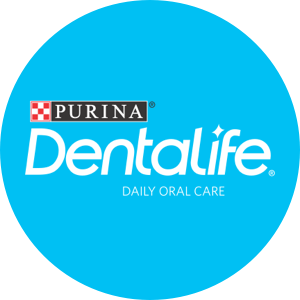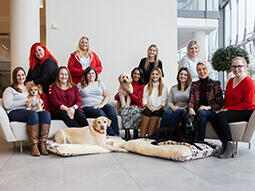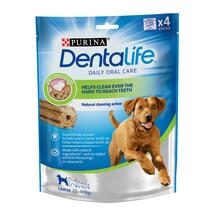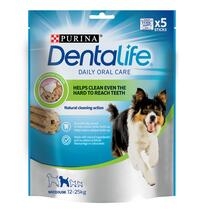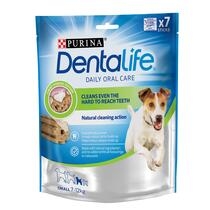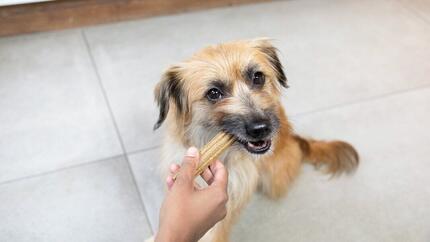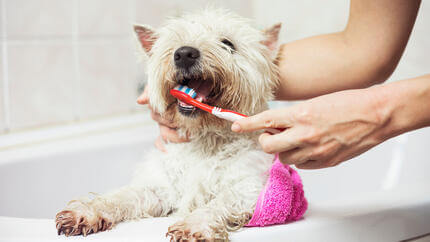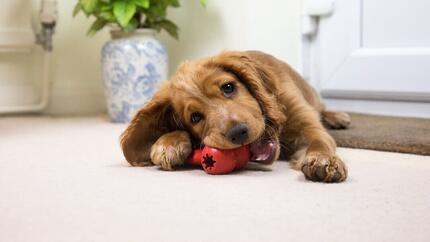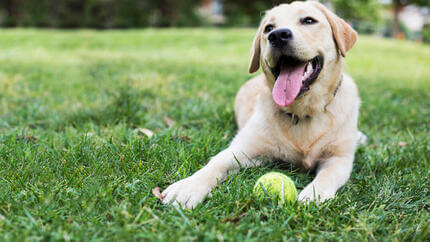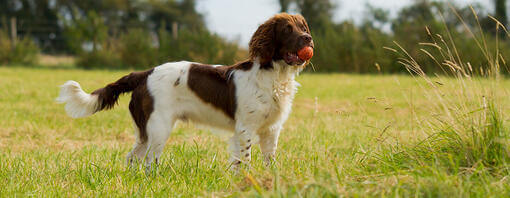
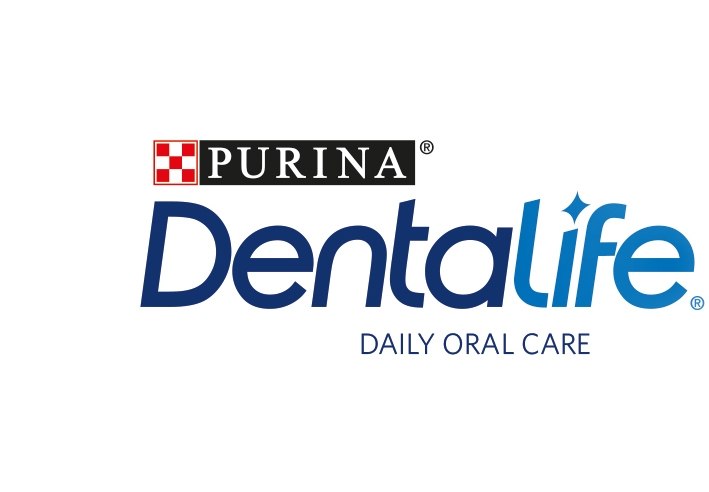
Why is my dog chewing excessively?
If your dog is chewing furniture, or excessively chewing their toys, it may be time to review their dental health. Discover possible causes for inappropriate dog chewing below, and learn how to help stop your dog from chewing furniture and other items.
Why is my puppy chewing on things?
Teething is perhaps the most common reason for a puppy chewing. Just like in humans, teething is a stage every puppy has to go through and it can be uncomfortable. Teething is when the adult teeth are emerging and puppies often find that chewing on things helps to relieve the pain. The problem is they don’t yet understand what is and isn’t acceptable to chew on.
Our first tip to help with puppy chewing and teething is to provide your puppy with plenty of safe chew toys. If they have plenty of appropriate items they can chew, they are less likely to chew on things such as furniture and cables. It is also important for you to play with your puppy using these toys. This will not only give you time to bond with your new pup but will also teach them that chewing their toys is a positive thing to do.
It is important to keep items you do not want to be chewed out of your puppy’s way while they are going through this teething stage. Things such as electrical cables and favourite shoes should be placed out of reach. This stage usually only lasts for around six months, and your puppy should generally grow out of it. If after this time your dog hasn’t grown out of this type of puppy chewing there may be an underlying condition. Always visit your vet if you are uncertain.
Medical causes for dog chewing
Another reason for a dog chewing excessively is because of a medical condition. If your dog isn’t getting all the nutrients they need for a complete and balanced diet, they may develop a condition known as ‘pica’. Dogs with this condition tend to compulsively eat non-food substances. This can often be mistaken for a dog chewing issue.
Gastrointestinal conditions such as dog gastroenteritis have also been linked to excessive inappropriate chewing. A dog with gastrointestinal conditions may chew things to help relieve the feelings of sickness. If you believe your dog could have either of the above conditions, you should take them to visit their vet for a full diagnosis.
Separation anxiety
Another common reason for excessive dog chewing is separation anxiety. This type of anxiety affects dogs that feels nervous when their owners leave them in the house alone. The stress can cause a dog to chew furniture and other items. Dogs will often show other signs of separation anxiety at the same time, such as excessive barking, defecation indoors, urination and extreme pacing.
The best way to help a dog with separation anxiety overcome this anxiety is to show them that being alone can be positive. Read more about helping a dog with separation anxiety in our handy article.
Boredom can cause excessive dog chewing
Boredom can be the cause of a number of inappropriate behaviours, such as a dog chewing excessively. Taking your dog out for daily walks and setting time aside to regularly play with your dog can help avoid this kind of behaviour. Your dog should not be frustrated or bored, but stimulated and happy instead. Check out our brain games for dogs if you need a bit of inspiration.
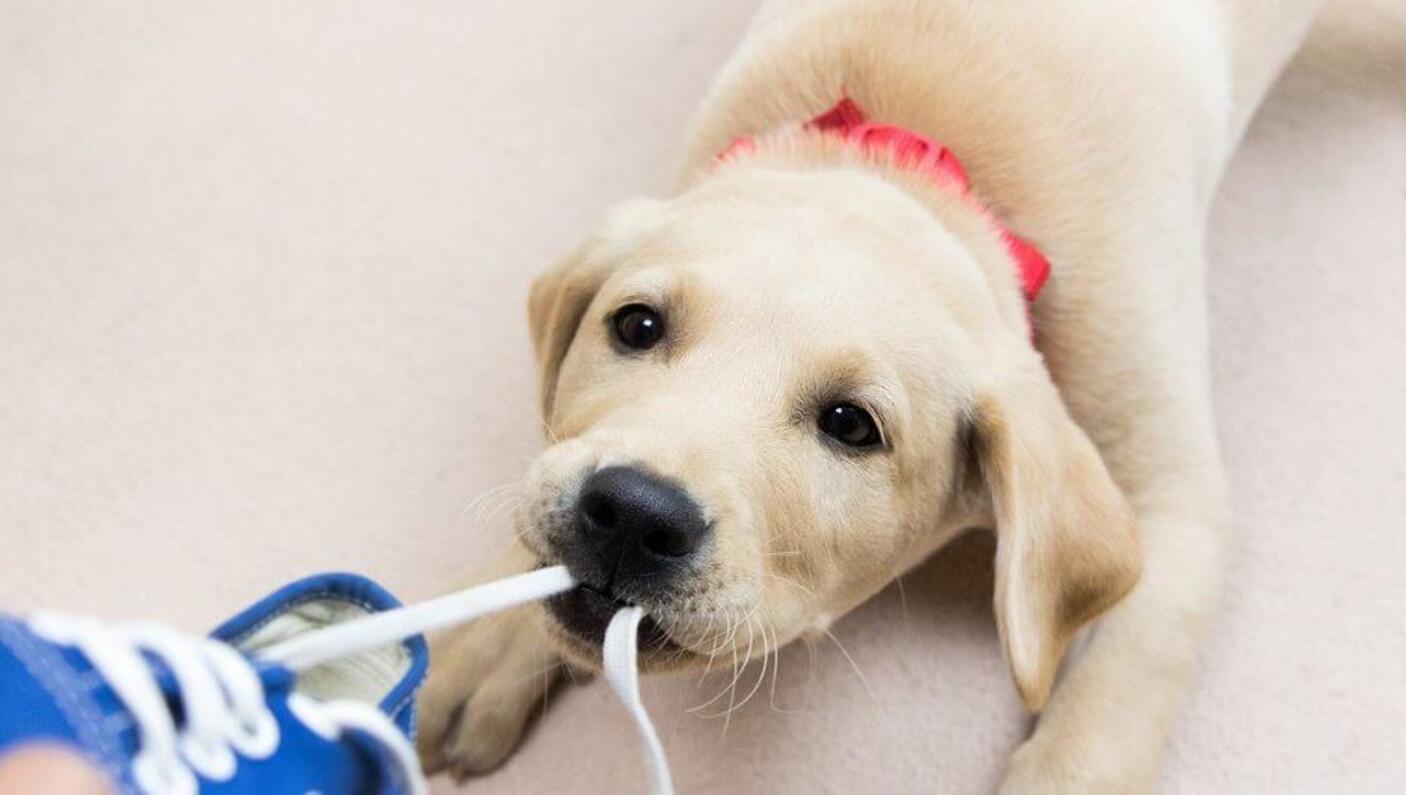
How to stop dogs chewing
Now you know what causes excessive dog chewing, it is important to learn how to stop dogs chewing, so this problematic behaviour does not continue.
To stop your dog from chewing excessively, you can:
- Dog proof your house - put objects you do not want to be chewed out of the way until you’re confident that your dog’s chewing behaviour is controlled.
- Provide lots of chews, toys and bones for your dog to chew on - variety is key here, as dogs get bored easily. Also, pay attention to the types of toys that keep your dog from chewing for a longer period of time.
- Do not offer old slippers or shoes to chew - your dog needs to learn the difference between what is acceptable to chew and what isn't.
- Be careful how you punish your dog for chewing - animals associate punishment with what they're doing at the time they're being corrected. If you have missed your dog chewing, you will have missed the opportunity to not only eliminate this undesirable behaviour, but also provoke other undesirable behaviours.
- Avoid leaving your dog alone for long periods of time - this may cause anxiety and boredom.
- Ensure your dog gets plenty of mental and physical stimulation with dog brain puzzles, take your dog for regular walks and have plenty of play time. This will reduce levels of stress, anxiety and boredom.
Next, find out more about puppy biting and how to teach them what is available for chewing and what is not.
Shop the Dentalife Dog range:
Related articles by Dentalife
